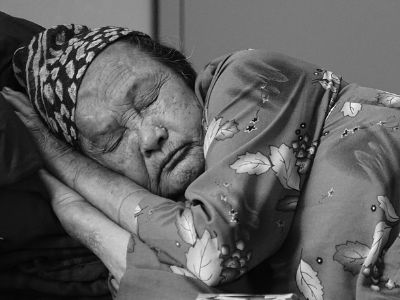How Serious Is Obstructive Sleep Apnea?

Obstructive sleep apnea is the most common sleep-related breathing disorder. It causes you to repeatedly stop and start breathing while you sleep. It occurs when your throat muscles irregularly relax and block your airway during sleep.

Obstructive Sleep Apnea Symptoms
- Excessive daytime sleepiness
- Loud snoring
- Some episodes of stopped breathing during sleep
- Mood changes
- Depression or irritability
- High blood pressure
- Abrupt awakenings accompanied
- Difficulty concentrating during the day
- Decreased libido
- Gasping or choking
- Awakening with a dry mouth or sore throat
- Morning headache
What Causes Obstructive Sleep Apnea?
These conditions are associated with this condition:
- Obesity hypoventilation syndrome
- Hypothyroidism, PCOS, and other endocrine conditions
- Chronic lung diseases
- COPD, asthma, and pulmonary fibrosis
- Neuromuscular disorders such as a stroke
- Heart or kidney failure
- Fluid build-up in your neck
- Pregnancy

Health Problems You Might Face If You Have Obstructive Sleep Apnea
- Hypertension. Sleeping problems worsen your high blood pressure if you already have it. It is due to the stress that your body gets if you are often fully awake at night time. It causes your hormone systems to go into overdrive, which boosts your blood pressure levels.
- Heart disease. People with OSA are more likely to have heart attacks due to low oxygen and fast fluttering heartbeat linked with the condition. OSA disrupts how your body takes in oxygen, which makes it hard for your brain to control how blood flows in your arteries and the brain itself.
- Type 2 diabetes. Sleep apnea is common among people with this condition. Obesity raises your risk for both disorders. Not getting enough rest can prevent your body from using insulin, leading to diabetes.
- Weight gain or obesity. Extra pounds raise your chances of getting sleep apnea, and the condition also makes it harder to slim down. The fatty deposits in your neck cause blockage of breathing when sleeping. Conversely, sleep apnea can cause your body to release more hormones that trigger your cravings for sweets and carbs.
- Daytime sleepiness. Constant fatigue during the daytime can take a toll on your health and daily productivity. Getting proper treatment helps you maintain an appropriate sleep schedule and reduces fatigue during the day.
- Memory problems. Some older people have more memory slips or thinking problems than other folks their age. The symptoms are not as severe as dementia. Getting treatment for OSA might delay memory troubles from getting worse.
- Depression. Poor sleep might make you more likely to get depressed. And depression may raise your chances of getting worse shut-eye. Talk to your doctor to get treatments that lift your mood and improve your sleep.
- Metabolic syndrome. This is a group of health conditions that have been linked with OSA. It is when you have at least three of these conditions:
- High blood sugar
- Low levels of HDL cholesterol
- High levels of triglycerides
- Too much fat around your waist
- High blood pressure
Treatment for Obstructive Sleep Apnea
For milder cases of obstructive sleep apnea, your doctor might recommend lifestyle changes which includes losing weight, exercising, and quitting smoking. Other treatment method includes therapy and surgery. Modafinil is also a medication used for obstructive sleep apnea.



